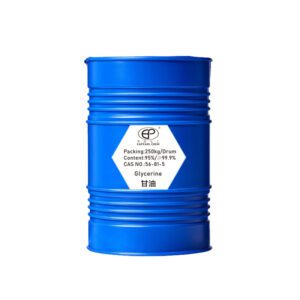In the intricate world of beauty products, cosmetics’ seamless blend and efficacy owe much to an unsung hero: solvents. As someone who has navigated the complexities of cosmetic formulation, I’ve learned that solvents are the backbone of many products we use daily. Solvents play a pivotal role in cosmetics by dissolving and dispersing ingredients, resulting in a smooth, even application. Their ability to improve texture and enhance product performance makes them indispensable in creating formulations that deliver promised benefits effectively.
Embark on this journey with me as we explore the critical functions of solvents in cosmetics, highlighting their impact on product quality and user experience.
Deep Dive into the Essence of Solvents in Cosmetics
What defines a solvent in cosmetic formulations?
In cosmetic formulations, a solvent is a substance capable of dissolving or dispersing one or more other substances to form a solution. This process is essential for ensuring that cosmetic products have a uniform texture and consistency, enhancing their application and absorption by the skin. Solvents play a pivotal role in cosmetics by allowing various ingredients, which may not naturally mix well together, to blend seamlessly. This improves the product’s aesthetic appeal and ensures active ingredients are effectively delivered to the skin. Common solvents used in cosmetics include water, considered the universal solvent, and organic compounds such as alcohols, glycols, and oils, each selected for their ability to dissolve specific ingredients and contribute to the desired product performance.


Why are solvents indispensable in skincare and makeup?
1. Ingredient Solubilization: Solvents dissolve other substances, creating homogenous and stable cosmetic formulations. This is crucial for blending ingredients that wouldn’t mix well otherwise, such as oils and water.
2. Product Texture and Consistency: The proper solvent can significantly influence the texture and consistency of a product, making it lighter, heavier, more dense, or thinner as desired. This adaptability allows for creating a wide range of products, from lightweight serums to thick creams.
3. Enhanced Absorption: Solvents help deliver active ingredients more effectively by enhancing their absorption into the skin. This ensures that the benefits of skincare and makeup products penetrate the skin’s surface to provide their intended effects.
4. Improved Application Experience: By adjusting the formulation’s viscosity, solvents contribute to a smoother application, enabling products to spread evenly over the skin. This results in a better user experience and optimizes the product’s performance.
5. Stability and Preservation: Some solvents act as preservatives, extending the shelf life of products by preventing microbial growth. They can also stabilize volatile ingredients, ensuring the product remains effective.
6. Versatility and Compatibility: Solvents make it possible to create formulations compatible with various skin types and concerns, allowing for specialized products that cater to individual needs.


Can the presence of solvents affect skin health?
Solvents can affect skin health, both positively and negatively, depending on the type of solvent and an individual’s skin sensitivity. Some solvents, especially those derived from natural sources or designed to be gentle on the skin, can enhance the effectiveness of skincare products without causing harm. They can help deliver active ingredients more efficiently, improving skin hydration and nutrient absorption.
For example, alcohols such as ethanol commonly use solvents to help other ingredients penetrate the skin more effectively. They can also strip the skin of natural oils, leading to dryness and irritation. On the other hand, gentler solvents like glycerin and propylene glycol can attract moisture to the skin, promoting hydration and supporting skin health.
Cosmetic formulations must balance the effectiveness of solvents with their potential impact on skin health. Consumers should look for products formulated for their skin type and be mindful of how their skin reacts to certain ingredients. Manufacturers often conduct extensive testing to ensure their products are safe and beneficial for skin health, focusing on creating formulations that deliver positive results without causing harm.


Which solvents are considered safe and beneficial in cosmetics?
Solvents considered safe and beneficial in cosmetics include water, glycerin, butylene glycol, and propylene glycol. These solvents are favored for their gentle properties and effectiveness in dissolving ingredients without irritating the skin. Water is the most universal solvent in skincare, providing hydration and helping to dissolve water-soluble ingredients for more straightforward application. Glycerin, a humectant, attracts moisture to the skin, enhancing hydration. Butylene glycol and propylene glycol improve the texture and penetration of active ingredients into the skin without causing adverse effects in typical cosmetic formulations. These solvents are widely used because they can safely enhance the performance and feel of skincare and makeup products.


How do organic solvents elevate cosmetic formulations?
Organic solvents elevate cosmetic formulations by enhancing product performance, improving texture, and ensuring efficient delivery of active ingredients to the skin. Derived from natural sources, these solvents are often chosen for their compatibility with the skin and ability to dissolve a wide range of cosmetic ingredients, including oils, waxes, and pigments.
Their incorporation into cosmetics can lead to formulations that are effective and more appealing to consumers looking for products with organic or natural components. Organic solvents like ethyl alcohol (derived from grains), isopropyl myristate (from vegetable sources), and essential oils can carry vitamins and antioxidants, facilitating their absorption and maximizing their benefits.
Furthermore, organic solvents can contribute to the sensory qualities of cosmetic products, improving their scent, feel, and spreadability on the skin. Cosmetic formulators can create gentle, practical products that align with the growing consumer preference for natural and sustainable beauty solutions by selecting appropriate organic solvents.


What makes a solvent ‘universal’ in the beauty industry?
In the beauty industry, a solvent is considered ‘universal’ if it can dissolve many substances, making it highly versatile and applicable across various cosmetic formulations. Water is often cited as the most universal solvent in cosmetics due to its ability to dissolve more substances than any other liquid. This property allows it to serve as the base for most skincare and makeup products, from creams and lotions to shampoos and conditioners.
A universal solvent’s efficacy lies in its compatibility with hydrophilic (water-attracting) and lipophilic (oil-attracting) compounds, facilitating the creation of emulsions that blend oil and water-based ingredients seamlessly. This improves the texture and application of cosmetic products and enhances the delivery and effectiveness of active ingredients. The universal nature of such a solvent enables formulators to innovate and develop a diverse range of products that meet consumers’ varying needs and preferences, contributing significantly to the advancement and diversity of beauty products.


Conclusion
The magic behind your favorite cosmetics, from their texture to performance, is primarily attributed to solvents. By understanding solvents’ vital role, we empower ourselves to make choices that align with our beauty and health standards. At EAPEARL, we’re committed to harnessing this magic responsibly, ensuring every product we craft meets and exceeds your expectations.








